Teledermatology toolkit
Coding and reimbursement for teledermatology
Reimbursement during COVID-19
CMS is processing telemedicine claims based on current guidance and your Medicare Administrative Contractor (MAC) may delay or require additional clarification to process telemedicine claims. Please reach out to your MAC for further guidance.
Teledermatology reimbursement rules are set by Medicare and individual private payers. The guidance below is on Medicare reimbursement.
Medicare reimbursement
The Academy has created a flowchart to help you identify and code teledermatology visits, along with a downloadable coding guide. Keep reading below for more guidance on how to use these documents.
Flowchart
The AAD has created a flowchart (PDF) to help you distinguish between and code these visits.
Download
Medicare virtual check-ins
Medicare pays separately for brief communications or virtual check-in. Virtual check-ins are patient initiated communications with a dermatologist or non-physician clinician reported with one of the “G” codes described below. It is important to note that new guidance released by CMS on March 30, 2020 has waived the established patient requirement for G2010 and G2012.
G2010 (asynchronous) – A Medicare patient sends a digital image to their physician for evaluation.
G2012 (synchronous) – A brief virtual check-in used for triage of a concern from a Medicare patient. This virtual check-in is a 5-10 minute live-video real-time two-way interaction between the patient and the dermatologist to determine if an in-person visit is necessary.
G2252 (synchronous) – This virtual check-in used for a more extended triage of a medical concern from a Medicare patient. The virtual check-in is an 11-20 minute synchronous interaction between the patient and the dermatologist to determine if an in-person visit is necessary.
Place of service code and modifier usage
Medicare telehealth services should all be reported with place of service (POS) code 11 and modifier 95 to indicate the encounter was performed via telehealth. These include CPT codes 99202 - 99215, 99421 - 99423, 99441 - 99443, 99446 - 99449, 99451 - 99452, G2010 - G2012.
Use the E/M service codes 99202 - 99215 to report a teledermatology synchronous service rendered via real-time two-way interactive audio and video that lasts longer than a virtual check-in (a virtual check-in lasts 5-10 minutes).
Other telehealth services
CMS also allows virtual encounters to Medicare beneficiaries by dermatologists and non-physician clinicians in the following settings:
Domiciliary, Rest Home, or Custodial Care services (new and established patients): CPT codes 99327 - 99328; CPT codes 99334 - 99337
Home Visits (new and established patients): CPT codes 99341 - 99345; CPT codes 99347 - 99350
Telephone calls
During the COVID-19 public health emergency, Medicare allows reporting of telehealth services rendered via telephone to Medicare beneficiaries through 2023. Payment for telephone only encounters (CPT codes 99441 - 99443) will be reimbursed at the same rate as established patient E/M codes 99212 - 99214.
Rates are based on the national Medicare Physician Fee Schedule (MPFS). Please check your local MPFS for the exact reimbursement rate in your location.
| Telephone CPT Code | Established Patient E/M Code | National MPFS Rate |
|---|---|---|
99441 |
99212 |
$55.78 |
99442 |
99213 |
$89.38 |
99443 |
99214 |
$126.00 |
Private payer requirements
As reporting requirements continue to evolve during this time, we recommend you contact all private payers you work with to ensure you are fulfilling their telehealth coverage policies.
Note: The Academy has based its coding resources and education efforts on CPT guidelines. Times associated with E/M levels are based on the current CPT code descriptors and guidelines.
Additional Academy resources
See regularly updated coverage of coding requirements that impact dermatologists.
Access Academy resources on private payers, including a tool that generates appeal letters.
See the Academy's coding resource center, organized around the subjects dermatologists need.
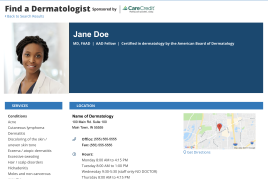 Make it easy for patients to find you.
Make it easy for patients to find you.
 Meet the new AAD
Meet the new AAD
 2022 AAD VMX
2022 AAD VMX
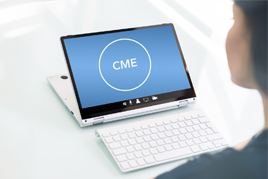 AAD Learning Center
AAD Learning Center
 Need coding help?
Need coding help?
 Reduce burdens
Reduce burdens
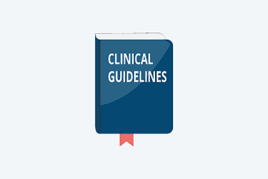 Clinical guidelines
Clinical guidelines
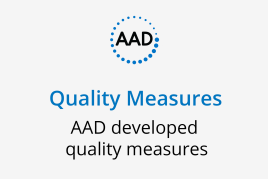 Why use AAD measures?
Why use AAD measures?
 Latest news
Latest news
 New insights
New insights
 Combat burnout
Combat burnout
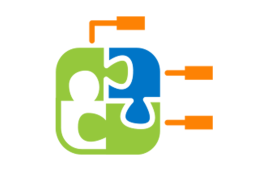 Joining or selling a practice?
Joining or selling a practice?
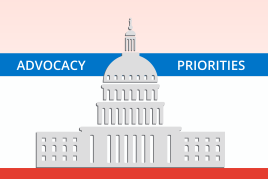 Advocacy priorities
Advocacy priorities
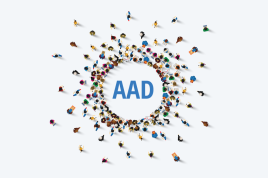 Promote the specialty
Promote the specialty
